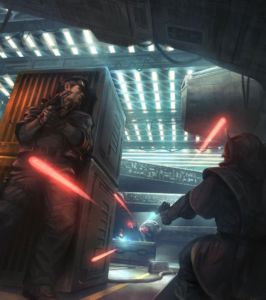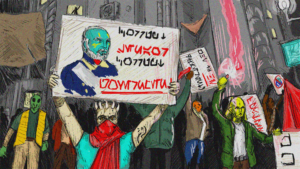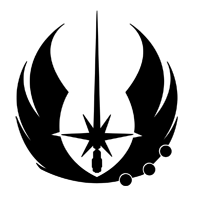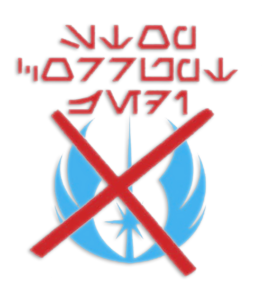
In the criminal underworld of the Republic, figures lurk every street corner. Violence is not uncommon as disagreements can quickly turn into shootouts. But despite the senate’s clamping down on illegal arms ownership, the intergalactic arms trade remains strong.
By far, Coruscant is the single largest hive of criminal activity in the Republic save for the Outer Rim. In 372 ABY, the senate passed legislation which would ban legal non-government arms sales on Coruscant in an attempt to clamp down on their illegal usage. Since then, the number of non-Republic arms used as evidence in court cases has more than quadrupled. In the last four cycles 100,412 weapons charges were decided by judges – most of which applied to repeating offenders. Of those repeating offenders, 46% were under the age of twenty.
“For most kids here, they either know someone in their family that is part of a gang or have a parent that is working for one.” Holonews spoke with Jamine La’men, leader of Coruscant’s 23rd level ‘Youth Hostels’, a charity which provides housing for young men and women who have been either kicked out of their homes by abusive parents or have lost their homes. Coruscant’s 23rd level has one of the highest numbers of petty theft of all other levels. “It’s not the same everywhere and they know that – but it’s a culture that just grows from a young age here. After the recession, social services started shutting down and kids didn’t know what to do with themselves. None of them are bad, no, but they don’t have the right support to find legitimate work, and go with what’s easy and what seems exciting at the time.”
“Blasters are more common than a hot meal in Resnik”, Jamine told Holonews. Resnik is the derogatory Vohaian name for ‘Little World’, a set of streets on the 23rd level. The gangs of Resnik are known for being involved with the illegal arms trade, mostly from Hutt origins. It is home to a population of Twi’lek and Rodian immigrant communities who fled during the Vohai Civil War, most illegally. The community has been faced with abuse since their arrival in Coruscant, anti-Vohaian demonstrations became increasingly common until the Republic’s Security Forces (RSF) stationed a permanent garrison in the heart of the community, one of the largest single garrison forces in the sector.
Jamine La’men tells us of the story of some of the young adults she has seen pass through her hostel, one in particular named ‘K’. K’s parents were illegal gang workers that had been sucked into the system since they were unable to find other work, until K’s parents were killed in a shootout between their own gang and a Wookiee gang of the 24th level. Unable to find work, K is now serving a life sentence for armed robbery and triple homicide.
But most of these gangs are sponsored by interplanetary crime syndicates, either as part of larger criminal organisations or part of the same purchasing networks. The most prolific of these remain the Hutt Cartel, which supply the majority of illegal substances and arms to criminal organisations within the Republic. Next to suppliers within the Hutt Cartel, the Killik Territories and Fel Empire remain the largest suppliers of weapons used by criminal organisations in the Republic.
NUMBER OF ILLEGALLY-OWNED BLASTERS SEIZED BY MANUFACTURER 395-398 ABY (1000s)
Hutt Cartel: 1469
The Republic: 1384
Killik Territories: 702
Fel Empire: 688
The Chiss Ascendency: 213
Bothan Authority: 198
The Rutan Crime Syndicate: 51
The Fel Empire’s diplomat to the Republic, Kammun Gran, was outraged by the insinuation of Holonews. “The fight against galactic gangs is one that must unite governments, not assign blame. Every government in the galaxy has a moral responsibility to clamp down on the illegal selling of their manufacturers’ arms.” The head of the RSF echoed the sentiments of Kammun Gran, adding: “This fight is a plague on our society, but there is a long history of neglect that needs to be owned up to.”
“We wish someone would really care”, Jamine said with tears in her eyes. “At a point, you just have to not think about it and get on. We want to care, but sometimes we have to turn people away – young people who are desperately in need of help – but they would endanger our community with their presence. Those are the ones that break my heart.”
Back to you, Lynda.





